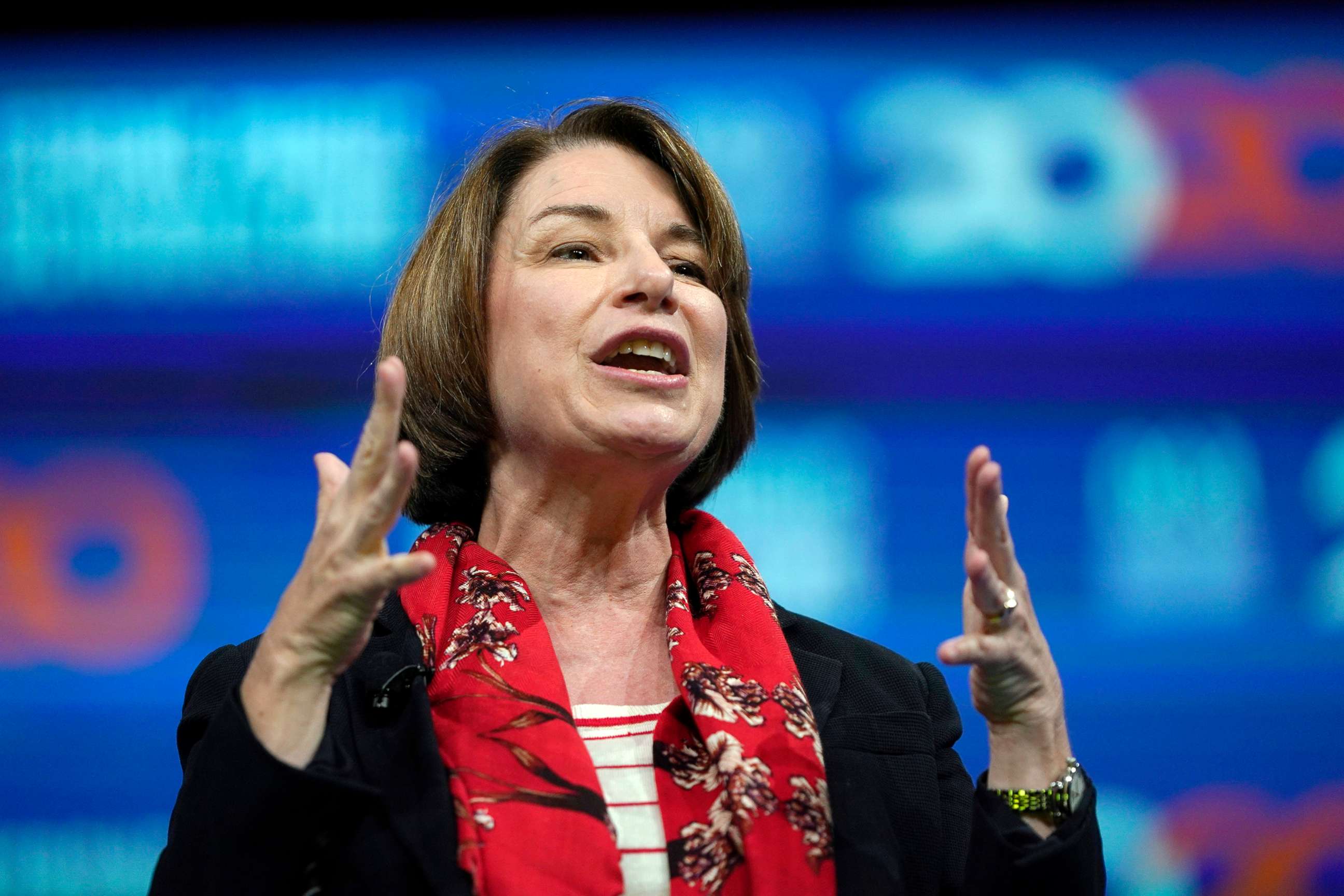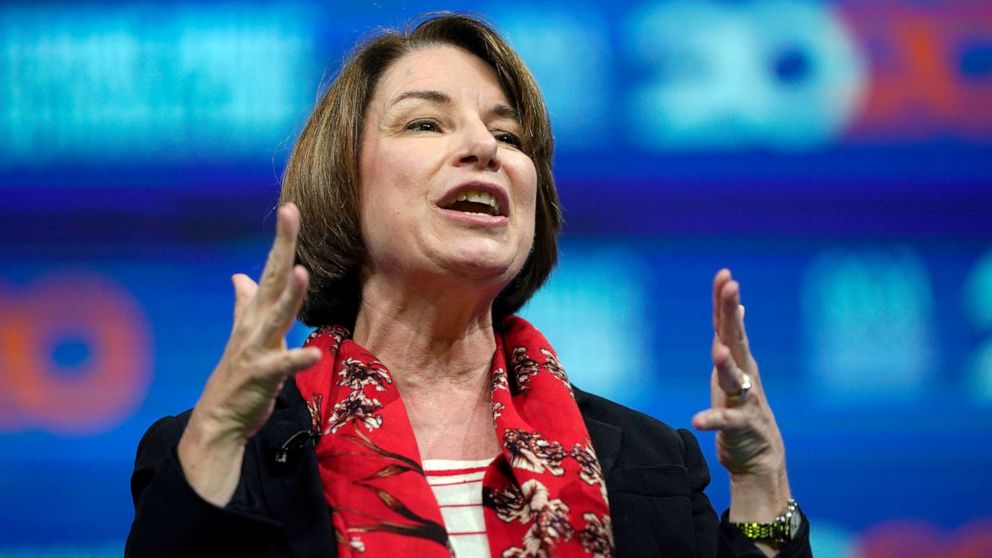Deportation raids are about distracting from issues: Amy Klobuchar
Sen. Amy Klobuchar D-Minn., said the Trump Administration announced Immigration and Customs Enforcement deportation raids in order to "make news" and scare the public.
The presidential candidate and member of the Senate Judiciary Committee questioned the government's latest illegal immigration crack down in an interview with Chief White House Correspondent Jonathan Karl on ABC's "This Week." Klobuchar's appearance followed a separate interview with acting U.S. Citizenship and Immigration Services Director Ken Cuccinelli on Sunday.
"If you wanted to go after security risks, and there are people who are security risks, why would you alert them and say you're doing this on a Sunday and do it two weekends in a row?" Klobuchar asked. "Why? Because you want to make news, right?"
The senator from Minnesota said ICE and White House officials aim to create fear, distract the public from other issues and use immigrants as "political pawns."
On Friday, crowds were seen rallying across the country to protest the proposed mass roundup and detention of undocumented immigrants that President Donald Trump announced would commence over the weekend.
Beginning on Sunday, federal immigration officers were scheduled to sweep across what was originally 10 cities -- San Francisco, Los Angeles, Houston, Denver, Miami, New Orleans, New York, Baltimore, Chicago and Atlanta -- to arrest about 2,000 undocumented immigrants, as outlined by Trump.
"It's not about (getting) people who are security risks deported, it's about scaring everyone in the country. And it is also about changing the news from things like, pharmaceutical prices that are going up at record levels," Klobuchar said, raising a central issue of her campaign.
Klobuchar released a plan on Friday to help seniors tackle rising health care costs.
"This president has made endless promises that he's going to do something about it or that he's going to do something about infrastructure. And we got electric grids catching on fire and levees bursting right now where I am in Iowa," Klobuchar said of a massive power outage in New York City and flooding in the Midwest.
"That's what's happening right now. And that's what happening to people in their real lives."

The issue of how to treat unauthorized border crossings has been a hot topic among the 2020 Democrats since the first debate. Some candidates support decriminalizing them; while others think that's going too far.
On "This Week," Karl asked Klobuchar where she falls on the issue.
The twice-reelected senator said she'd look at the statute that makes "improper entry" a a federal misdemeanor, a low-level offense, but couldn't say if she'd abolish it. In 2018, the Justice Department issued a "zero tolerance" policy, ordering prosecutors to bring criminal charges against migrants crossing the border illegally.
"I support different enforcement policies," Klobuchar said. "But I don't support open borders and simply getting rid of this statute."
"I think the answer is to have a new president."
Klobuchar has run her campaign with pragmatism as the centerpiece of her moderately liberal policy positions. She reminds voters at each stop that she's from the Midwest, is the first woman to represent her state in the U.S. Senate and knows how to work with Republicans.
In 2018, she won her election over the GOP nominee by 24 points, compared to former Secretary of State Hillary Clinton, who won by less than two in Minnesota in the 2016 presidential election.
She has focused on issues with broad bipartisan support, such as mental health and lowering prescription drug prices. She often describes the ideas of her colleagues further to left as aspirational, but she said she's not an obstacle to liberal policy-making. For example, she's a co-sponsor of the Green New Deal, while acknowledging it would need an overhaul before passing it.
Her latest proposal focuses on helping seniors facing high health care costs and weakening retirement resources. She is focusing on expanding resources for care givers, funding greater research on chronic conditions, expanding health care and overhauling Social Security. She has said that she'll pay for it by closing trust fund loopholes that allow the wealthy to avoid paying taxes on inherited wealth.




